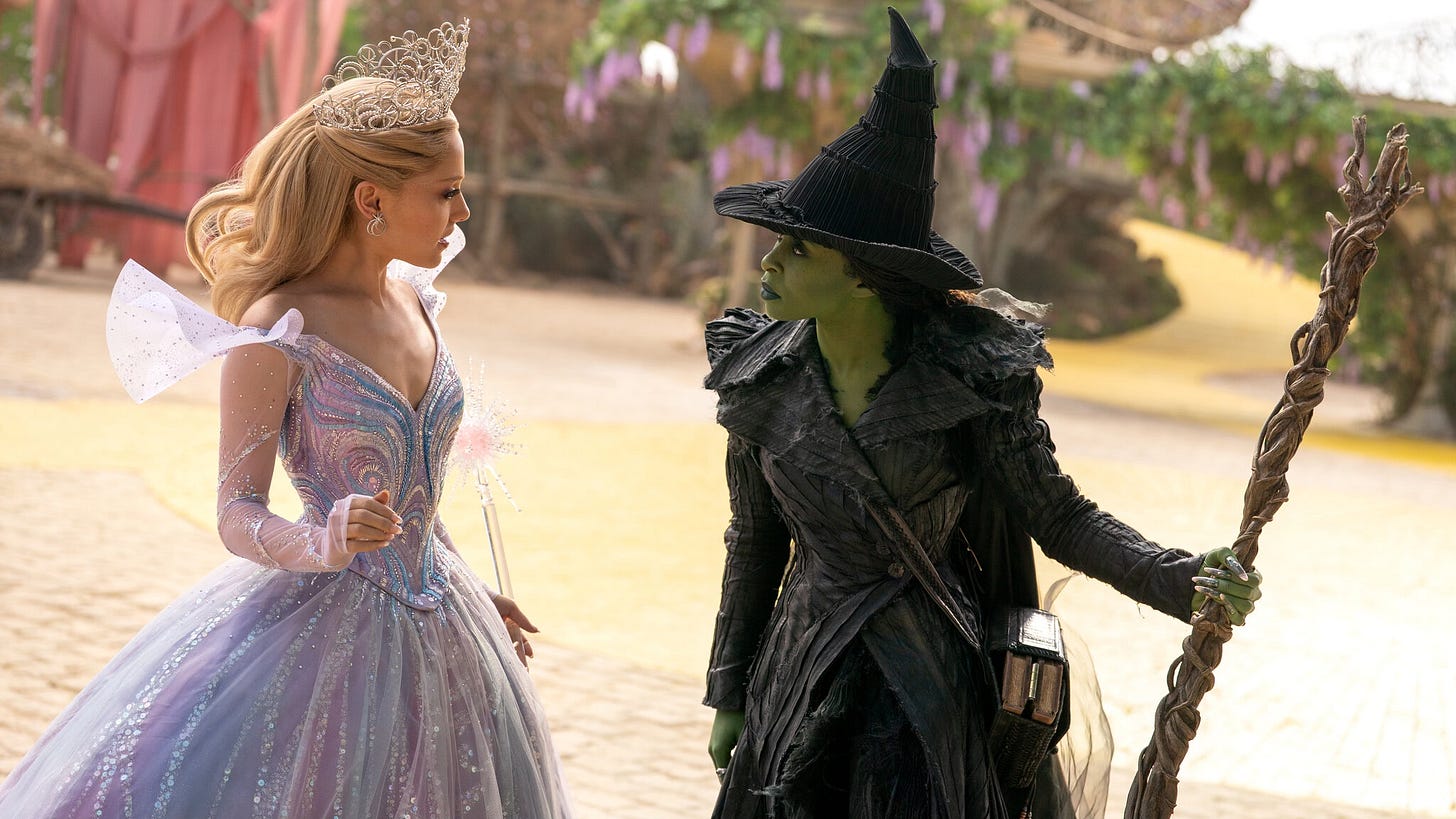Wicked: For Good
2025
Let’s get right down to it: are there river otters in Wicked: For Good? Yes! (Also, a family of fennec foxes with tiny backpacks.)
Now, the minor stuff.
I see now why everyone has been worried about this sequel living up to the first film due to the play having a “weaker second act.” I am not sure if I would use the word “weaker,” but this half of the sto…




